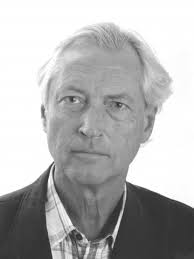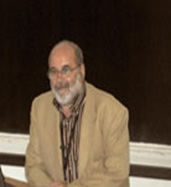EMERITUS MEMBERS
Emeritus Members: Persons who have been Regular Members of the Society, have retired from full-time employment and who have made an exceptional contribution to the objects of the Society, may be elected by Council with their formal announcement by the President during the Society’s General Meeting at the biennial meeting. So far, these are:
 Kjell Fuxe
Kjell Fuxe
Kjell Fuxe has been a pioneer in brain and neuroendocrine communication and integration. He provided evidence for the existence of central monoamine neurons, volume transmission and its different forms, and receptor-receptor interactions in heteroreceptor complexes in the central nervous system. He applied this knowledge to develop novel strategies for treatment of schizophrenia, depression, Parkinson’s disease, and cocaine addiction. He introduced, for example, several DA receptor agonists for treatment of Parkinson’s disease and became a pioneer also in molecular neuropychopharmacology. Integration of synaptic and volume transmission signals can take place in synaptic and extrasynaptic heteroreceptor complexes, becoming a new major mechanism for neuromodulation of synapses. The reorganization of the homo- and heteroreceptor complexes in the postsynaptic membrane with novel adapter proteins may form the molecular basis of learning and memory.
https://www.sfn.org/-/media/SfN/Documents/About/History-of-Neuroscience/Volume-10/HON-V10_Kjell_Fuxe.pdf
 Paul Pévet
Paul Pévet
P. Pévet has studied in biology at the University of Poitiers. In September 1969, he started a research project on the endocrinology of the pineal gland at the laboratoire d'"Endocrinologie Comparée" (University of Poitiers, France). In March 1972, he obtained a "Doctorat de IIIe Cycle" at the University of Poitiers. In October 1972, he moved into the Netherlands Central Institute for Brain Research, Amsterdam and started a collaborative work (again in pineal endocrinology) with Prof. Dr. J. Ariëns-Kappers, director of the Institute. In March 1976, he obtained a Ph.D. degree at the University of Amsterdam (The Netherlands). He is member of more than 14 scientific associations and societies. Among these scientific societies, he is a founding member of: 1) The "European Pineal Study Group". From 1977 to 1990 he was the secretary-treasurer. In 1990, he has been elected president (new name: "European Pineal Society) and re-elected for the period of 1993-1996. Since March 1996, he is a permanent advisor for the Society Council (new name European Biological Rhythms Society).2) The "Melatonin Club". In 1995 he has been elected the first secretary-treasurer of this group and 1999 to 2003 he has been re-elected treasurer 3) In 1992, he has been elected member of the scientific council of the "Societé francophone de Chronobiologie" (1992-1996) and of the "Société de Neuroendocrinologie expérimentale" (1992-1995) (reelected in 1999). From 2002 to 2008, he has been elected president of the “Société francophone de Chronobiologie”.
 Maria-Paz Viveros
Maria-Paz Viveros
Full Professor of Animal Physiology (Ret). Teaching and Research during 33 years in the School of Biological Sciences of the Complutense University of Madrid. Currently Emeritus Member of the Spanish Society of Physiological Sciences, the Spanish Society of Neuroscience, the European College of Neuropsychopharmacology (ECNP) and the European Brain and Behaviour Society (EBBS). Awarded by MNS with an
HONORARY MEMBERSHIP. for being a person of distinction in science who has contributed to the advancement of Neuroscience in the Mediterranean Region. We have focused on the investigation of psychoneuroendocrine factors accounting for an increased vulnerability for neuropsychiatric disorders, including drug addiction, with a special interest in critical developmental periods and have a wide experience in animal models and behavioural pharmacology, particularly regarding the impact of drugs of abuse. The endocannabinoid system has become pivotal in our research as its homeostatic balance seems to be crucial for stress responsiveness, emotional processing and cognitive function, thus playing a key role in mental health. Throughout my scientific trajectory, sex differences have been of major interest and we have been a pioneer research group in the investigation of sexual dimorphisms. During the last years we have been involved in the study of neuropsychiatric disorders by means of an animal model of early life stress, i.e. maternal deprivation, evaluating developmental sex-dependent trajectories along the lifespan (infancy, adolescence and adulthood) and its possible interactions with environmental insults such as drugs of abuse (cannabinoids, cocaine, ecstasy, etc.) or psychophysiological stress. I have published more than 120 scientific articles, reviews and book chapters, acted as the principal investigator of several research projects and supervised numerous postgraduates' works, including several Doctoral Theses. I have presented as invited speaker numerous talks and seminars in many Scientific Meetings and Workshops, including ECNP and SfN among others. Reviewer for numerous outstanding journals and member of several editorial boards.
 Kjell Fuxe
Kjell Fuxe Paul Pévet
Paul Pévet Maria-Paz Viveros
Maria-Paz Viveros